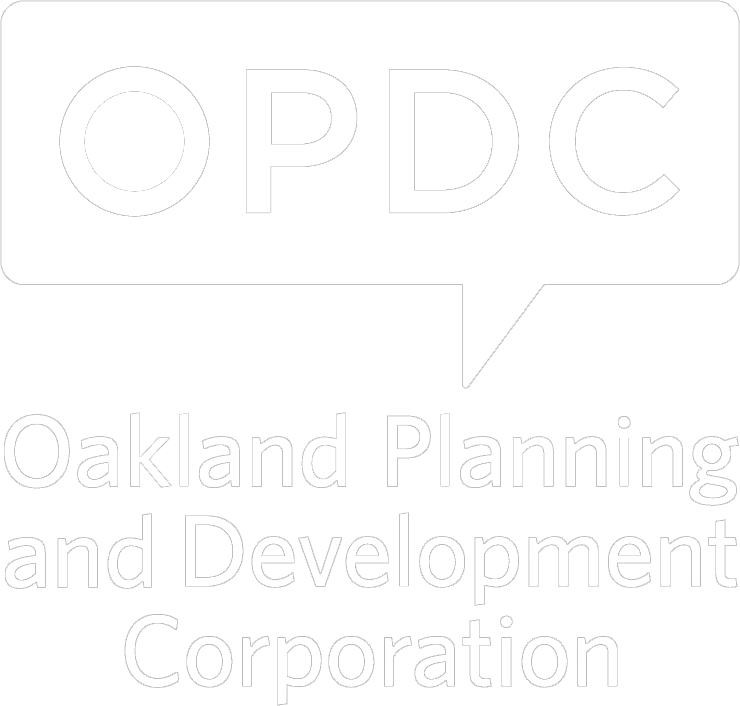By: Emelia Sargent, B.S. Environmental Science, University of Pittsburgh 2023
A weekend morning on the streets of Oakland can look like the aftermath of a parade. From empty pizza boxes and assorted cans to the occasional disheveled college student and confetti, anything you can imagine can be found on the streets of Oakland. Parades have designated cleanup crews – but here we rely on volunteers.
There are no easy answers to the litter problem, but OPDC’s Adopt-a-Block program offers one set of community-oriented and sustainable solutions. This past year, OPDC recruited teams of Pitt students to adopt routes in each Oakland neighborhood. Teams organized clean-up events with the goal of maintaining a clean, safe, and welcoming neighborhood for all residents and visitors. Working consistently throughout the year, team members developed familiarity with and a sense of ownership over their routes, and a stronger connection to the neighborhood. With any luck, this familiarity will extend to an intrinsic dedication to the Oakland community.
One of this past year’s route team captains, Kate Blanock, described the sense of ownership she formed for her route: “I love my route. Sometimes I even will just go on walks around Oakland, and I’ll check out how it’s looking. It’s especially nice knowing that I’m cleaning up streets that some of my friends live on or streets with businesses we support (we clean the streets with Mad Mex and Frenchi’s Deli!).” Volunteers like Kate are the backbone of the Adopt-a-Block program.
Adopt-a-Block hosts two types of litter collection events. The first are mini cleanup events held by individual teams for the routes they have adopted. The second are monthly Oakland-wide cleanup events, in which volunteers are assigned to clean up areas in Oakland that have not been adopted or need extra attention. The clean-up events are social and fun – and ironically thrived under COVID restrictions. Last year’s socially distanced, masked collection events were an excuse to gather and chat, work collaboratively, and often included snacks. According to Kate, “Our team would occasionally have donuts or other treats before our pick-up events! This is definitely one of my favorite parts because I haven't been able to see a lot of our team members over the last year - it has been really nice to get to hang out with our friends in a safe manner and also get to help out our community. We also play music as we walk around and pick up garbage, so it's always fun to get to make a task that most people would think is gross enjoyable!”
Kate’s route was one of 13 that were adopted throughout all of Oakland’s neighborhoods, cared for by teams ranging from five to 32 members. In all, 155 unique volunteers participated in socially distanced clean up events for their route team last year. This year, with more of Pitt’s students attending classes in person, we are hoping to do even better! Anyone who lives in the Oakland community or simply wants an opportunity to collect litter can participate in Adopt-a-Block clean up events or form a team.
The Adopt-a-Block program is all about community service and engagement, which is why I was drawn to coordinating it. As a student at the University of Pittsburgh I have found that it’s very easy to get wrapped up in the daily activity of student life and forget that you are part of a greater community. From classes, clubs, work, and extracurricular activities that only bring students to Oakland for the night life, I know I am not alone. I was drawn to the Adopt-a-Block program because it was an invitation to become actively engaged in the Oakland community. It has been spectacular to see and be a part of the impact Adopt-a-Block made last year. Thanks to these wonderful volunteers, over 200 bags of litter were collected. The success of this program is truly a result of the enthusiasm and dedication of the Adopt-a-Block teams.
If you are interested in joining the Adopt-a-Block program, the invitation to become part of the community is always open! You can contact us at www.opdc.org/volunteer.
Emelia Sargent worked with us through the Community Assistance Internship program at the University of Pittsburgh this past year, coordinating the Adopt-a-Block program and helping to keep track of neighborhood quality data. Read about her experience working with our amazing volunteers.




